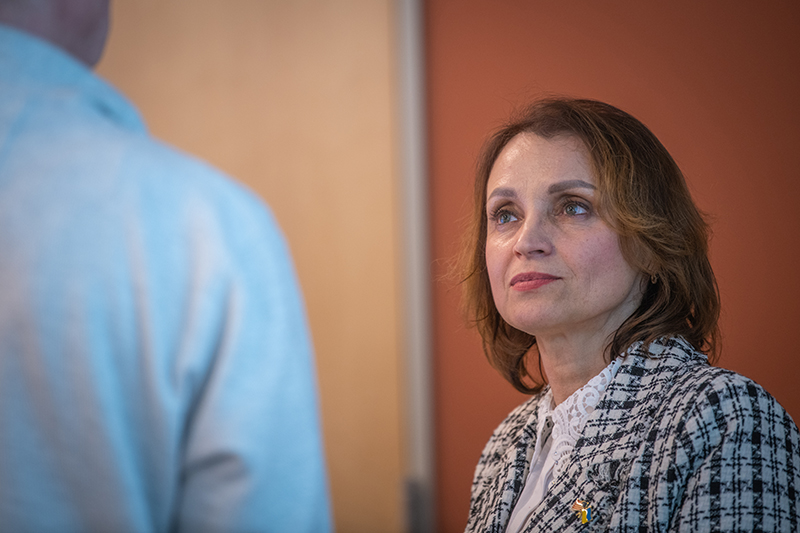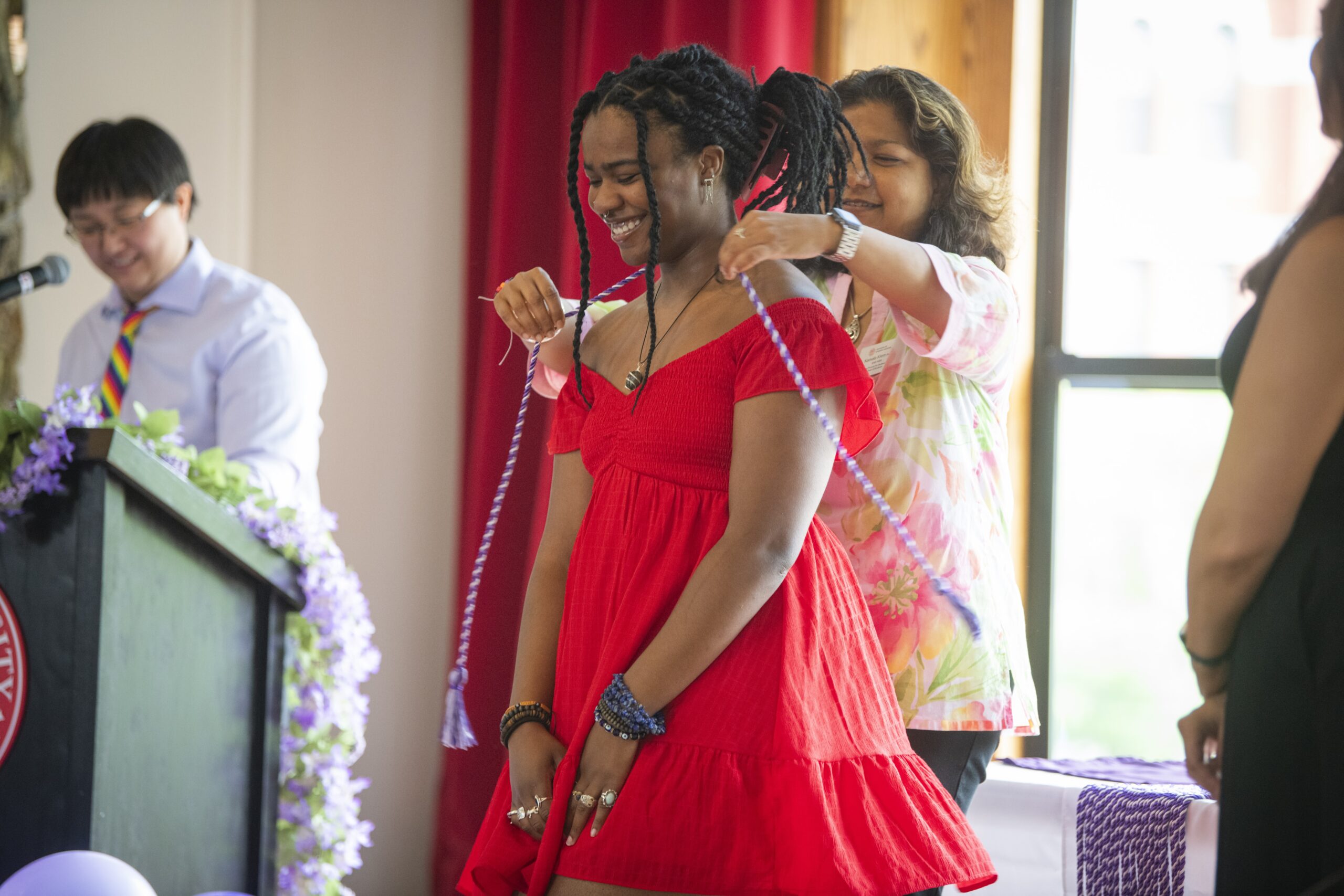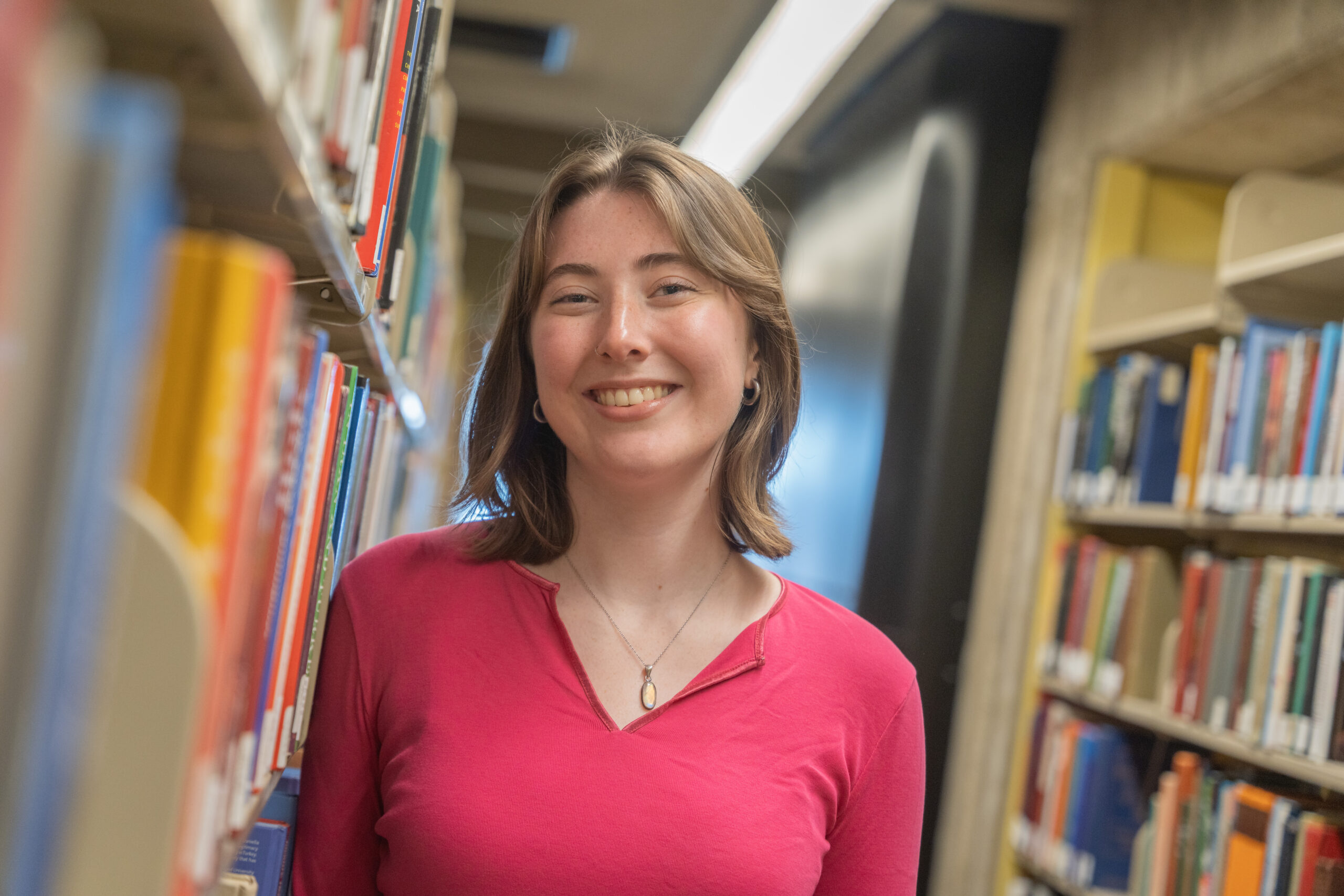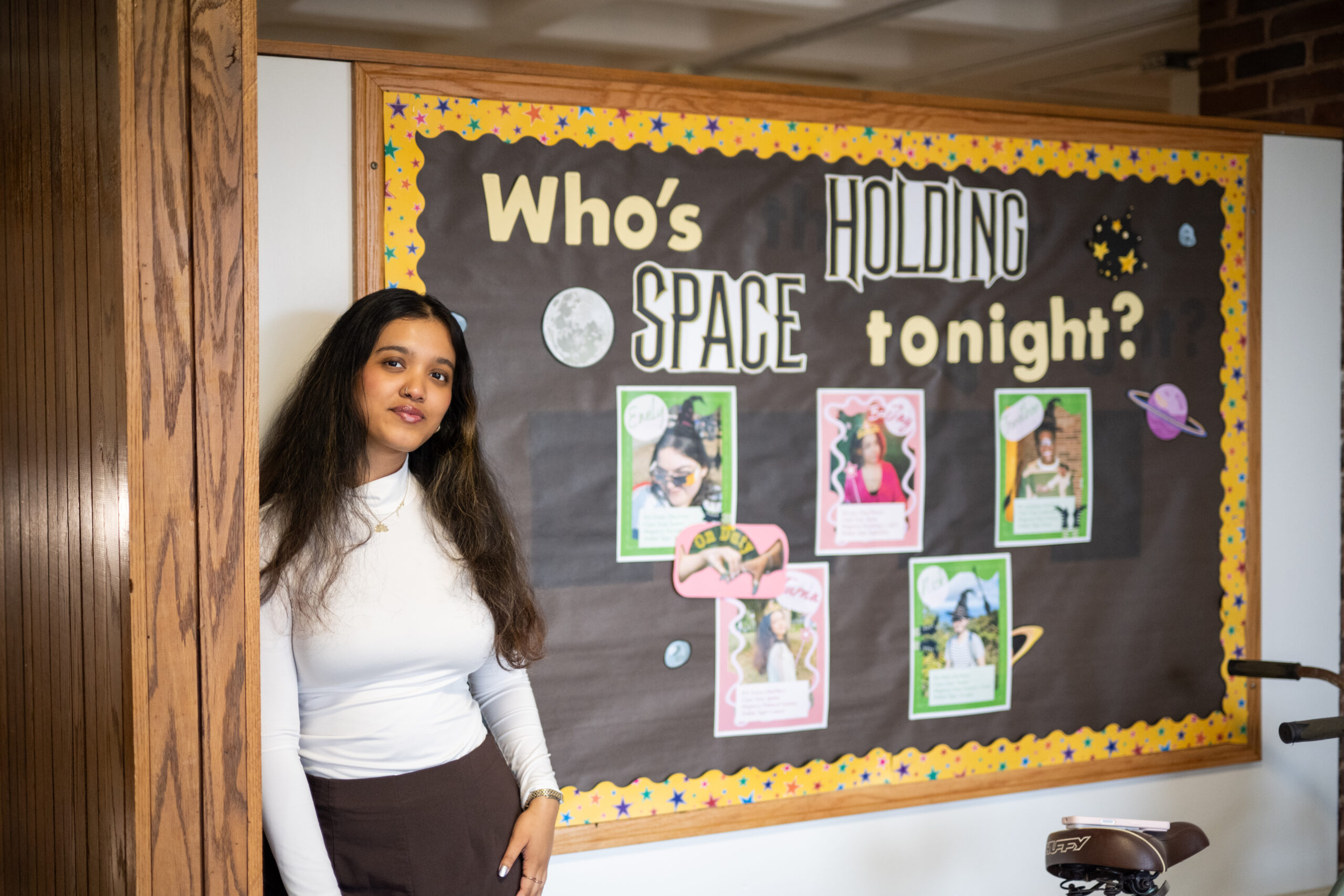Visiting Ukrainian scholar presents on ‘Teaching During Wartime’
Svitlana Ustychenko discusses the war in Ukraine during a recent visit to Clark University.
Students sit in a college classroom, listening to a lecture and engaging with their instructor. Suddenly, a loud noise pierces the air, and they calmly leave the room, making their way to a secure shelter — where they will wait together until it is safe to return to their normal activities.
For students at the Cherkasy State Business College in Cherkasy, Ukraine, air raid warnings have become an all-too-normal event in the 15 months since Russia invaded their country. In a May 2 visit to the Clark University campus, Svitlana Ustychenko, director of the language center at the college, delivered a presentation titled “Teaching During Wartime” in which she discussed how the college is dealing with the ongoing threat of attack and ensuring that students can continue their studies.
Located in central Ukraine, Cherkasy is a cultural and educational hub about 100 miles from Kyiv, Ustychenko said, with 19 different types of educational institutions that enroll 18,000 students, including 1,100 at the Cherkasy State Business College. The 26-square-mile city has been the target of Russian bombardment at various times since the war began — not long before Ustychenko’s visit, a missile struck an apartment building, killing 24 people, including four children.
“No one knew what to expect” when Russia invaded, Ustychenko said, but “we had to adapt to the situation. We had to move forward.”
Classes were canceled for three weeks, and students living on campus were sent home. Eventually, classes were resumed, albeit online; this allowed the students who left Ukraine with their families to continue their coursework.
“The first few months were difficult for us because of the uncertainty,” Ustychenko said. “No one knew how long the war would last.”
With up to seven air raid alerts occurring each day, the college introduced safety rules for both online and in-person learning. When the sirens sounded, students and faculty immediately evacuated to a shelter for protection from missile attacks.
To avoid overcrowding at the college, classes were scheduled across three shifts, and classes were reduced from 80 minutes to 60 to ensure they ended before darkness fell.
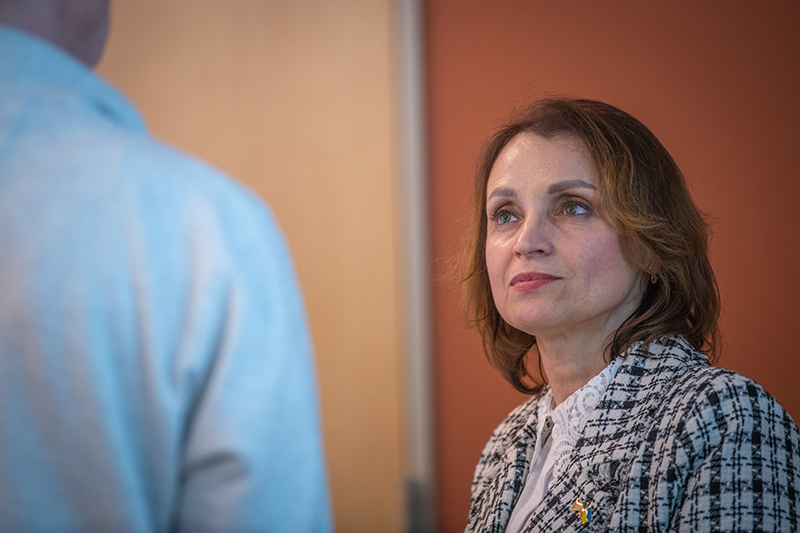
During the summer of 2022, Russia began targeting Ukraine’s critical infrastructure to damage its ability to provide electricity and heat in the coming winter months. To counteract that, the college began its academic year in the middle of August, instead of after September 1, to end the semester during the warmer months.
More than half of Ukraine suffered a complete power system shutdown as a result of Russian bombing, Ustychenko said. “We learned to live without the electricity, but it was difficult to work without the internet.” The college administration purchased two generators that allowed professors to conduct online lessons.
Cherkasy State Business College also helped students deal with “war anxiety,” whether by engaging them in different activities or encouraging them to talk about their experiences, if they chose to.
The college has created a humanitarian aid center where students can volunteer and work on different initiatives. Among those are supporting families who have been evacuated from Severodonetskm in the heavily contested Donetsk region of Ukraine; creating an aid fund to help sustain students, faculty, and staff who have family members fighting on the front lines; and collecting basic necessities for the Ukrainian armed forces.
“The most important thing for us, as an educational institution is that we were able to survive the most difficult times of uncertainty at the beginning of the war. We’ve managed to maintain the educational process,” Ustychenko said.
During a question-and-answer session, Ustychenko was asked how members of the Clark community can help her students. “One of the ways you can support our students is to organize a course, workshop, open lecture, or seminar that they can attend online,” she said. These efforts can help distract them from their difficult reality and “show them that we are not alone — that there are people who support us.” The online interactions would also help the students improve their English language skills and acquire life skills, she added.
Ustychenko noted that American students could learn from Ukrainian students. “Some of your students may not understand or appreciate what opportunities they have — what a luxury it is to live peacefully and not to have to decide whether to go to a shelter or stay in your flat,” she said.
Ustychenko’s visit to Clark was sponsored by the School of Professional Studies (SPS) and the International Center. While on campus, she met with administrators and faculty from across the university, including Provost Sebastián Royo and John Labrie, associate provost and SPS dean. In those meetings, Ustychenko and the Clark administrators discussed the possibility of establishing a partnership between Clark and the Cherkasy State Business College.


